“Dry” cleaning is one of those things that sounds like a much better idea than it is. You might have an inkling of that when you step into a dry cleaners to drop off or pick up your laundry and get an overpowering whiff of …yeah, what IS that smell?
It’s actually a toxic solvent called perchloroethylene, or PERC. I get an instant headache if I’m exposed to it after as little as ten minutes; I don’t know how the cleaners themselves can tolerate it. It’s also known to cause nausea and dizziness, has been linked to reproductive problems, including miscarriage and male infertility, and been blamed for disorders of the central nervous system. Bringing clothes that exude PERC into homes and cars can leave behind a residue that can rise above levels that are considered safe to breathe. How “clean” is that?
PERC poses an environmental threat, too. According to the Natural Resources Defense Council, the chemical generates toxic air pollution and hazardous waste in many of the communities where it’s used. In fact, says NRDC, three-quarters of PERC-using dry cleaners in the U.S. are estimated to have contaminated soil and groundwater where they’re located.
CLEANER, GREENER DRY CLEANING ALTERNATIVES
If you’d prefer not to bring PERC into your home, beware of cleaners that claim to be “organic” or green but aren’t. “GreenEarth” is the brand name for siloxane D5, a silicone-based chemical the manufacturer says degrades into sand, water and carbon dioxide. However, the EPA is still assessing whether siloxane could cause cancer. A 2003 study showed an increase in uterine tumors among female rats that were exposed to very high levels of these chemicals.
Also avoid petroleum-based solvents, sometimes marketed as Stoddard, DF-2000, PureDry, EcoSolve, and Shell Solution 140 HT. Yes, they contain organic chemicals, but they’re the “volatile organic chemicals” or VOCs that cause some of the same problems attributed to PERC.
The good alternatives?
“Wet” cleaning: This method uses water and specially formulated, nontoxic, biodegradable detergents to clean sensitive fabrics such as wool, silk, linen, and rayon. It is one of two processes considered environmentally preferable by the Environmental Protection Agency. It does not create toxic air or water pollution, nor does it appear to have negative health effects. Just be sure that, before you turn your special fabrics over to shops that offer wet cleaning, you discuss the fabric with them to make sure wet cleaning is appropriate.
* Liquid carbon dioxide (CO2): EPA also considers this method preferable to dry cleaning, but it’s more difficult to find because the equipment it uses is expensive. Some CO2 cleaners also use a Solvair machine, which adds the toxic solvent glycol ether to the process; ask the cleaning company to explain their entire process before you do business with them.
* Find safer cleaning companies. Go to www.nodryclean.com to find the safest dry cleaners near you.
* Do it yourself? The Laundress has developed non-toxic and biodegradable cleaning agents you can use at home to launder your own fine and sensitive fabrics.
What else can you do to avoid PERC?
* Buy “wash and wear” clothes you can launder at home. Before you buy new clothes, check the label on the inside seam for laundry directions. If it says “dry clean only,” you might want to reconsider.
* Treat stains and dirt when they occur. For most fabrics other than silk, you can treat stains with soda water and a little gentle liquid soap, saving you the trouble of having to wash the entire garment.
* Wear cotton camisoles and t-shirts under hard-to-launder fashions. The underwear will absorb sweat and body odor and help extend the life of your more delicate sweaters and blouses.
* If you do need to go to a traditional dry cleaners, expose your clothes to the fresh air. Put the windows down if you’re driving home with the clothes in the car. Once home, take the clothes out of the plastic bag they came in and hang them outside.
Related Posts:
For more great ideas on how to keep toxins out of your house, don’t miss this month’s Green Moms Carnival, hosted by Lori Popkewitz Alper at Groovy Green Livin.


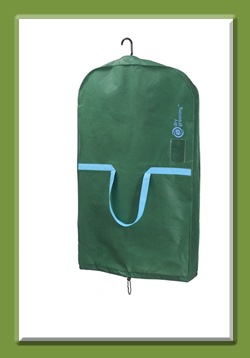


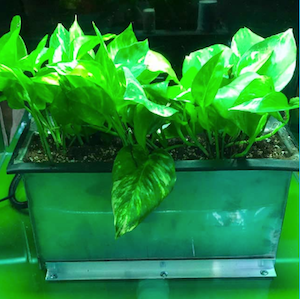
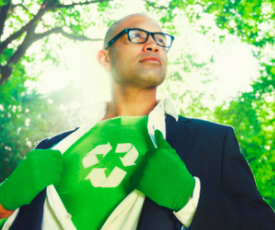
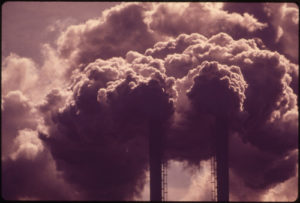
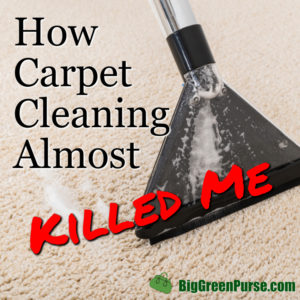









14 thoughts on “Clean and Green Dry Cleaning Methods Reduce Your Exposure to Toxic Chemicals”
I’m glad you wrote this comprehensive post about dry cleaning. I was searching all over the internet for this kind of info about a year ago and couldn’t find much. It’s especially hard to navigate all the “green” dry cleaning claims.
We try to steer clear of dry clean only fabrics. But even those that have this label I’ve found can usually safely be washed on the delicate or hand-wash setting of our front loader. I now pay someone about once a month to iron my husband’s shirts and pants — much cheaper than dry cleaning and no scary chemicals.
After many phone calls top my dry cleaner, I finally got word that they do not use this. They said that most cleaners have phased this out because it is so bad but it is always a good idea to verify!!
Agree to that, fresh air is the best way to dry our clothes! I’ve been using baking soda to remove stain. Also vinegar sometimes, for the deodorant stain.
I also tend to push the envelope on washing at home some clothes that say dry clean only, without any problems. I think sometimes the labels are a little conservative and you can wash more if you’re really gentle and use Woolite and hand wash
Yes, I do a lot of hand washing, too. It helps to have a dryer rack to hang sweaters over, though just blocking them on a dry towel works just as well. Thanks for writing.
I haven’t tried using vinegar to remove stains, but I’ll consider it the next time I have to get out a spot. Thanks.
Hmmmm – I don’t know if a lot of cleaners have phased it out. It seems like every cleaner I walk into smells to high heaven, and not from flowers. I hope they’re not just telling you they’re not using PERC because they think it’s the politically correct thing to do.
I always think that clothes and sheets that have been left to dry outside on a sunny day smell and feel fresher.
It is great that there are now dry cleaning methods and products that promote a greener environment. These methods and products protect the environment and our health from toxic chemicals. Hopefully, more people would be able to support this clean and green dry cleaning techniques.
The so called “Green Dry Cleaning Solutions” still need to be handled as toxic waste when removed from the dry cleaning plants. These solutions are about as organic as gasoline. It’s another diversion scam.
I agree with Bryan, there are dry cleaning firms out there who are essentially operating a ‘scam’, using cleaning products that they claim are ecologically friendly, when they are infact anything but.
The thing that is most abhorrent about it is the dishonesty. There will be customers who aren’t particularly concerned with the fact that they use ‘green’ cleaning supplies. But on the other hand there will be customers who have sought out a dry cleaning firm as they believe them to offer a service that is kind to the environment. The fact that there are companies who will ride the coat tails of what they perceive to be the latest fad in a cynical attempt to drive profits is utterly morally reprehensible.
These methods and products protect the environment and our health from toxic chemicals. Hopefully, more people would be able to support this clean and green dry cleaning techniques.
Hello, I really like this post. If I did not read this one, I would not probably know this PERC and how harmful it is. I am considering this one also to share with my friends. Keep posting valuable information.
Now, until this time, I am wondering if my clothes have PERC.
One of the lessons I learned is to look for “dry clean only” . Great post.
Thanks for writing. One of the lessons is actually avoid clothes requiring dry cleaning, so you don’t have to worry about the chemicals used. Good luck!
Comments are closed.